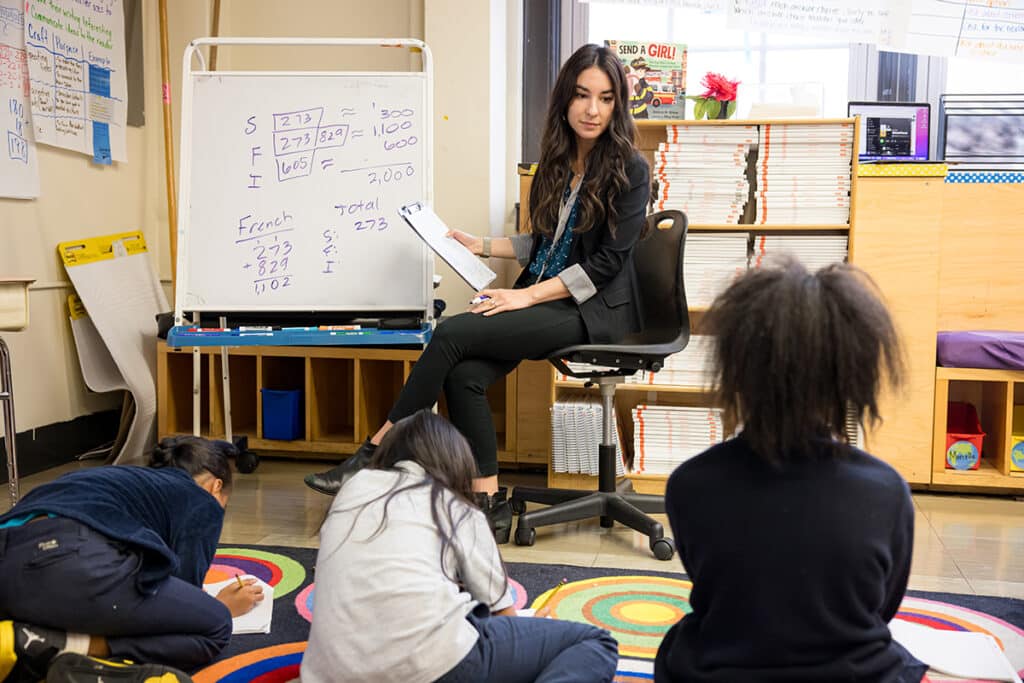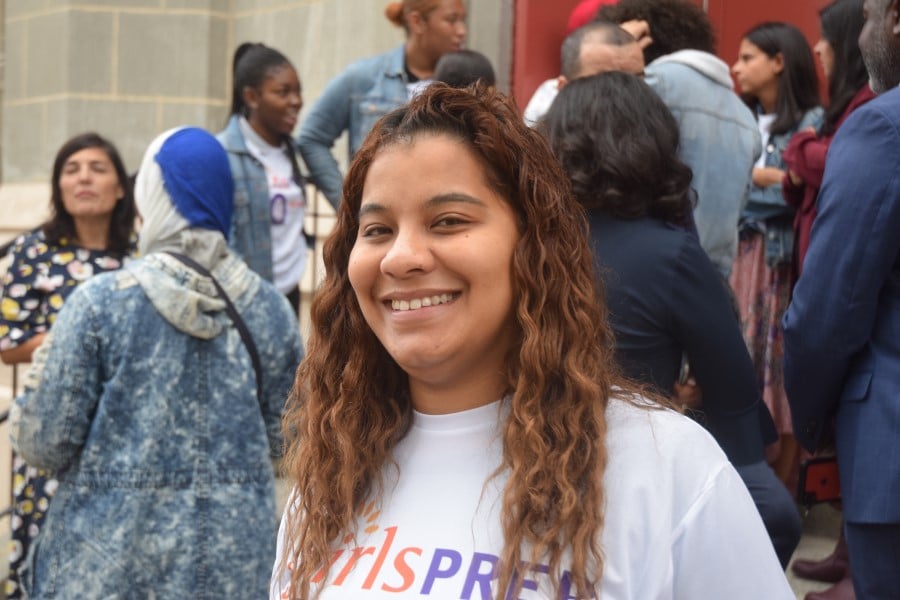Janelle Bradshaw, Chief Executive Officer of Public Prep, and Tamara Albury, Principal of the Young Women’s Leadership Academy, Fort Worth, recently discussed during an episode of PEP Talks: Podcast on Educational Possibilities how to develop leadership skills and self-esteem in girls, and in particular in girls of color. The following are excerpts from their conversation. You can listen to the full interview here.
Megan Murphy, Executive Director, National Coalition of Girls’ Schools
Q: How do you define student leadership at your schools?
A: Janelle Bradshaw: We start with promoting student voice and agency in our classrooms—those opportunities where our girls get to have different roles in small groups. They engage in discussions and debates to really understand different perspectives and critique each other’s opinions. The notion that your ideas matter starts from the very youngest ages, so we are reinforcing all of the pathways in which they can be successful. We talk about breaking barriers so our girls see that when they are the first, they should never be the last. We also talk to our girls about being brave and not perfect so they are taking risks to be leaders.
Tamara Albury: We help our students understand how to earn a place in the room and at the table, how to stay at the table, and how to challenge the status quo for women—specifically for women of color. How we define leadership is more about the things that create a great leader: being empathetic and having humility. Leadership is really about providing our students with the opportunities and the skills to change the status quo at every level.
Q: What are the building blocks for fostering confidence and self-esteem in girls, which are essential to taking on leadership roles in its many forms?
A: Albury: Having a positive self-identity. Society bombards girls from very early ages about their worth, value, and capabilities. By providing opportunities and experiences of acceptance and empowerment, that reinforces the idea, “I can do it, I can be it.” The other thing is to name those stumbling blocks, so when you’re hit with those negative messages, you’re able to see them for what they are to know that it’s not you, but it’s external from you. We also provide a culture of positive feedback, not just focusing on achievement, and on the idea of growth mindset—that with effort, I can continue to grow.
Q: How do you think a girl-centered environment plays into development of leadership skills, confidence, and self-esteem in young women?
A: Albury: There’s a song by Sweet Honey In The Rock entitled, “No Mirrors in My Nana’s House.” When it came to the songwriter’s value in her beauty, it was all in how her grandmother described it to her—there were no self-deprecating messages. That’s what is so important about a girl-centered environment: you don’t have the mirror of those structures that tend to default to men. It really does help girls grow into who they would be without those social constraints.
Q: How do you foster leadership in girls as early as elementary school?
A: Bradshaw: It’s really important for students to have moments of choice and agency within their classroom. Elementary schools should provide opportunities where girls are creating their own knowledge bases, where they can make decisions that impact their community and allow them to make change. What we’re seeing in our girls is when those leadership opportunities expand as they get older and they are in coed environments, they are the first ones to raise their hands because they know their voice matters. It just becomes part of the norm.
What’s so unique about all-girls environments is you’re part of a community that is constantly reinforcing not just your specialness but your place in the world. I think that’s a really distinct and important characteristic, particularly when you’re supporting girls of color. It’s not just nice for you to be here, but instead you deserve to be here.
Q: A recent study found that 48% of Black girls self-identify as leaders, which is the highest of all racial and ethnic groups. Yet bias is a key barrier to them being able to embrace this identity and engage in different forms of leadership. What do you think is happening in our schools that’s keeping more Black girls from moving into leadership roles?
A: Albury: It’s very hard for our Black girls to move into leadership roles when there is a culture of power that is acting as a gatekeeper. They’re at a disadvantage because, if adults are making the decision in which these students are able to have leadership roles, unfortunately time and time again, they’re left off the lists. And not necessarily just Black girls, but girls of a variety of different shades. When we are providing leadership opportunities as school leaders, we should be color conscious and not color blind. What happens is the girls have that fire and desire, but after so many no’s and so many doors being closed and so many opportunities not being offered, their voices get quieter and quieter. As leaders, it’s our responsibility to make sure that, when opportunities are being presented, Black girls have an equal opportunity to be a part of those lists, that they are on those lists, and that they are participating.
Bradshaw: There is a very specific role that teachers and leaders can play in counter-programming or counteracting the negative self-talk that is happening in girls’ heads, where if they’re not chosen for a role, that’s the end, versus if there’s something you feel you deserve and you’re not getting it, we want students to feel comfortable and confident asking why and seeking change, because sometimes adults make mistakes.
We also need to have conversations within our communities. If we have criteria for leadership positions, how are we applying it equally? Is there some bias that’s happening internally that we may not know about that we need to surface? And how do we ensure we are providing representation of all our girls?



